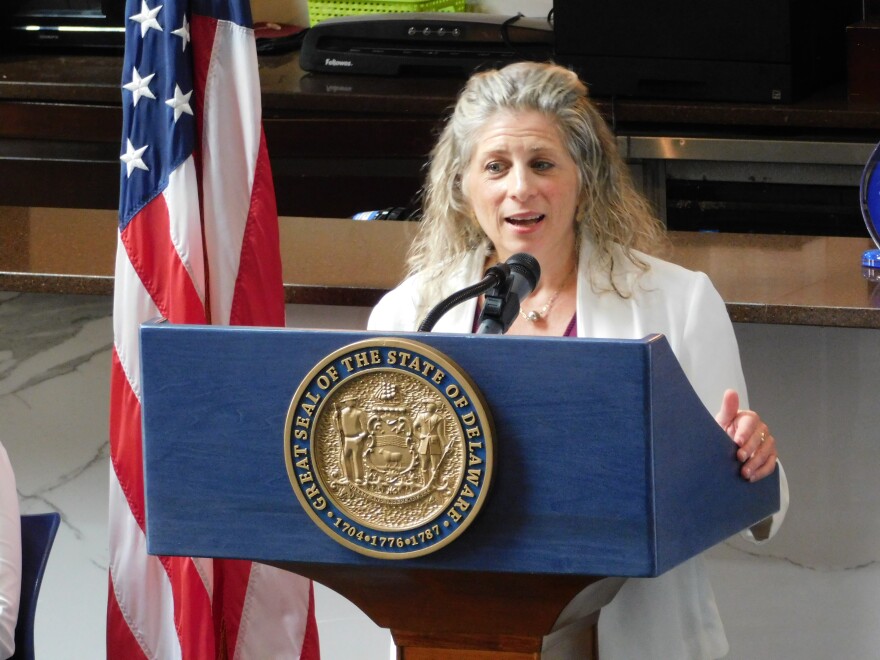Delaware announces a partnership with nonprofit Undue Medical Debt to eliminate $50 million in debt for an estimated 17,000 residents.
Gov. Matt Meyer secured $500,000 in state funds last month that will be leveraged to eliminate medical debt for Delawareans with an annual household income at or below 400% of the federal poverty level.
This is an income of roughly $100,000 for a family of three, or a resident will qualify if they have medical debt that equals 5% or more of their household income.
CEO of Undue Medical Debt Allison Sesso explains there is a large for-profit market for medical debt because debt collectors can purchase that debt from hospitals for pennies on the dollar.
“We, as a nonprofit, have seen that and said, ‘You know what, if we take donated dollars, government funds, and we take those funds to the market, we can buy those debts too,’ but we're not gonna follow up and try and harass people for that money, we're just gonna send them letters and let them know that they are free and clear of those debts, and they do not owe them anymore," she said during the partnership announcement Wednesday at the New Castle County Hope Center.
Qualifying residents do not need to apply — the debt will be wiped automatically and Gov. Meyer expects those letters to go out to residents in the coming months.
The governor also signed a bill prohibiting the reporting of medical debt to consumer credit reporting agencies in an effort to keep medical debt from disqualifying individuals in accessing housing, credit or jobs.
The legislation, spearheaded by State Sen. Spiros Mantzavinos (D-Elsemere), was signed into law just weeks after a federal judge ruled that medical debt can remain on Americans' credit reports.
This ruling cancelled a policy set in place by the Biden administration to help relieve the burden of health care expenses weighing on nearly a third of the U.S. population.
"Now with this federal protection gone, and the [Consumer Financial Protection Bureau] practically defunded, you have other federal protection rollbacks that we're seeing across the board from the federal level, rising healthcare costs, cuts in Medicaid, it's more important for us here at the state level and in the state legislature and with our governor to pass meaningful laws that protect all Delawareans," Sen. Mantzavinos said.
The final piece of legislation signed by Gov. Meyer will, in six month's time, allow Delawareans to petition the court to have certain past eviction records shielded from public view.
The bill’s sponsor, State Sen. Elizabeth "Tizzy" Lockaman (D-West Wilmington), explains this will make eviction records inaccessible in background checks and housing applications.
Sen. Lockman believes the new law will help reduce long-term barriers to housing and employment, especially for those who faced eviction due to temporary hardship or have maintained a clean record since.
Prior to signing the bill, Gov. Meyer explained someone might qualify for housing, have the money for the security deposit, but be denied due to a prior eviction action.
“This can happen even if the tenants prevailed in that eviction action, so they actually never did anything wrong, and that's plain wrong. So giving the tenants the opportunity to move on from previous eviction filings, we're giving them back their freedom to grow and flourish," he said.
The court must grant shielding upon a motion by the defendant if it finds any of the following seven caveats to be true:
- The judgment against the defendant was a judgment on the merits, a default judgment, or a stipulated judgment, five or more years have passed since the judgment was entered, the defendant has satisfied any monetary award included in the judgment, and the defendant has had no other similar judgments within five years of the defendant’s motion to shield.
- The parties resolved the action through a stipulated agreement, and the defendant has complied with the terms of the stipulated agreement.
- The plaintiff withdrew the complaint.
- The Court dismissed the plaintiff’s complaint.
- The final judgment was in favor of the defendant.
- The plaintiff and the defendant have agreed to the shielding.
- The shielding of the records is clearly in the interests of justice.
Once the court has granted the shielding, it has 45 days to effectuate it.




